Je T’Aime, Je T’Aime (1968)
“I love confusion — things that change.”
|
Synopsis: |
|
Genres, Themes, Actors, and Directors:
Review: … but eventually shifts towards a non-linear exploration of (Rich’s) memory, guilt, and sense of reality. Certain random scenes from Rich’s past are replayed repeatedly (i.e., a snippet of his snorkeling adventures on the beach): … while others are merely flashes of conversations or glimpses into his life at work or play: We never fully understand what happened with his lover Catrine, who was clearly depressed: … or whether Rich will successfully return from his experimental jaunt through time. It seems he’s stuck in a series of loops — much like his own obsessive thought-process — and we don’t know what’s ultimately in store for him. Your appreciation of this film will depend entirely on your interest in avante garde cinema — i.e., stories more concerned with exploratory impressions and philosophical wonderings than with anything resembling a logical trajectory; though to Resnais’ and co-screenwriter Jacques Sternberg’s credit, the entire affair does cohere. Notable Performances, Qualities, and Moments: Must See? Links: |
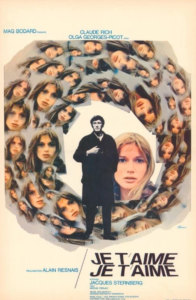
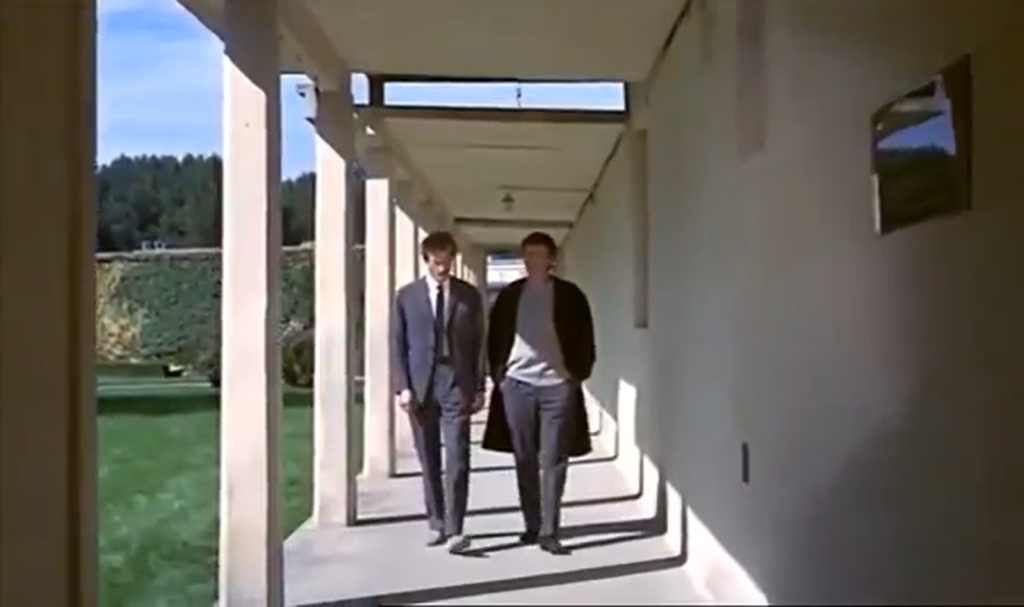

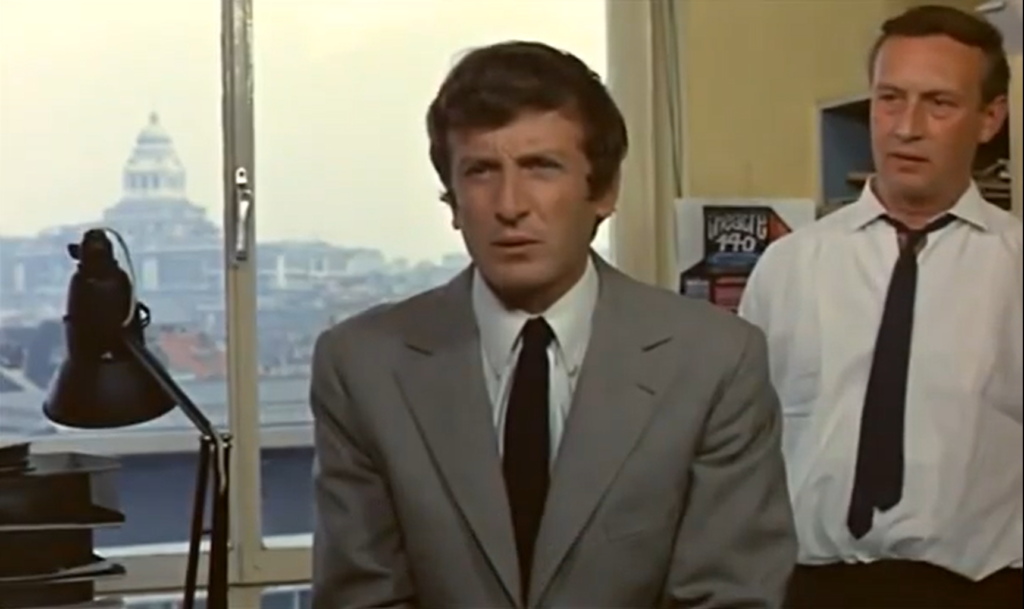
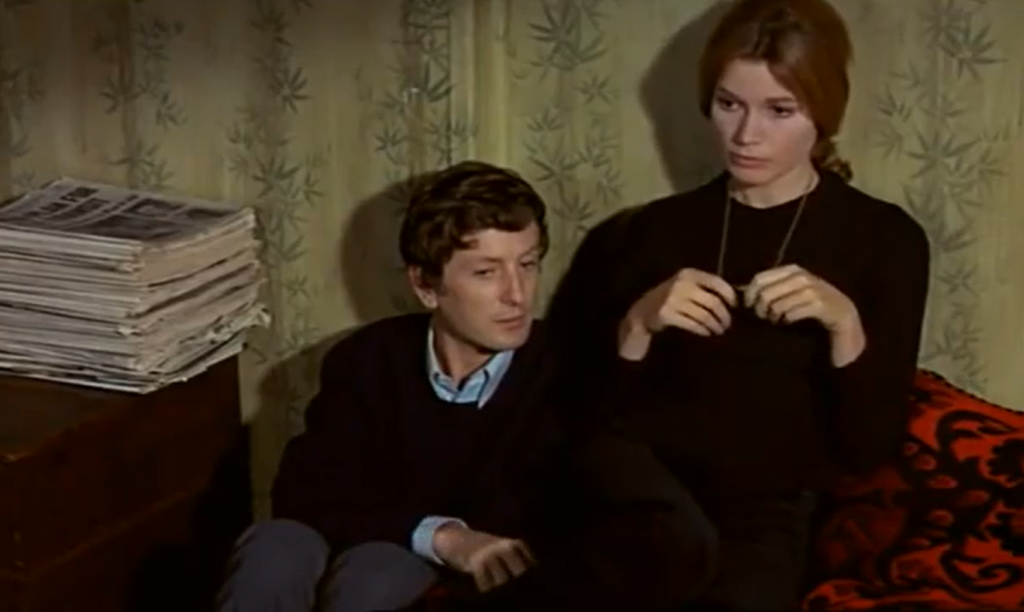
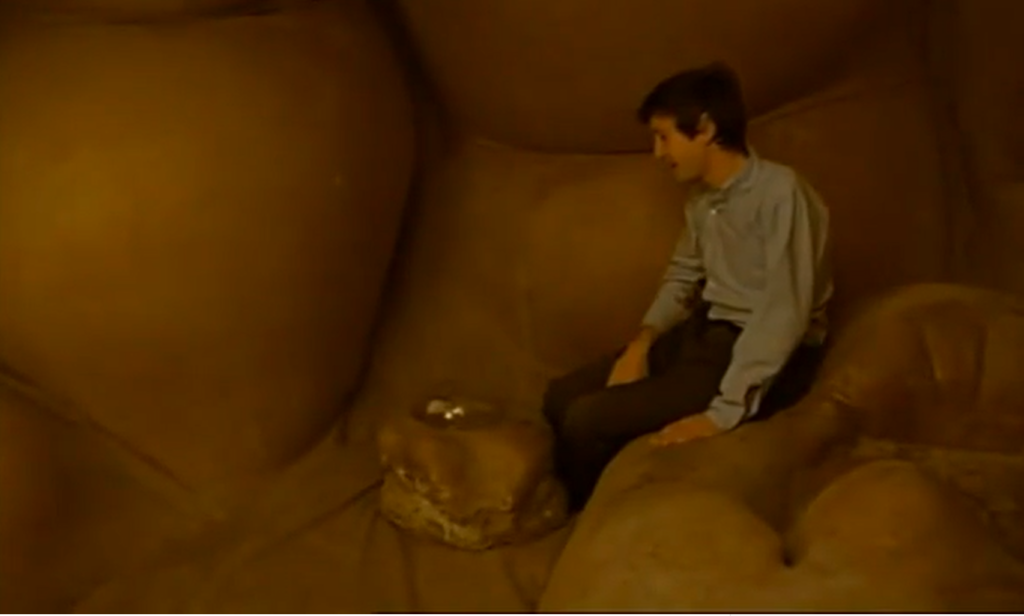
One thought on “Je T’Aime, Je T’Aime (1968)”
First viewing. Not must-see.
Unfortunately, the premise of the film is much more interesting than the way it’s eventually worked out as a shooting script. Rather than what it ends up being (more of a mood piece), it could have been more compelling had it been fleshed out more realistically. A large part of the time-travel conversations are, alas, an unfortunate combination of poetic and absurdist (and, yes, we have no easy time keeping up with what goes on; it becomes not so much a challenge as much as irksome – unless you are really up for the kind of brain-tease that’s particular to this film… which I wasn’t, really).
Still… several decades later, the film was a noticeable influence on Michel Gondry’s ‘Eternal Sunshine of the Spotless Mind’ – which (while not a remake) takes a similar approach to playfulness with time and benefits from scenes that are (thankfully) much less poetic and more along the lines of the ways that people actually talk. It becomes a rich experience for viewers because it’s not distancing in its effect.
‘Je t’aime’…’ gets to be something of an endurance test as it goes along – and ‘Eternal…’ is quite wonderfully the opposite.